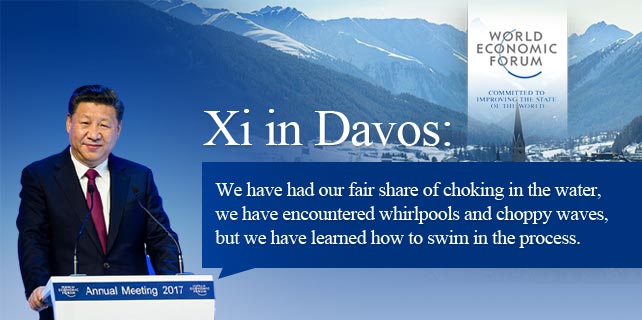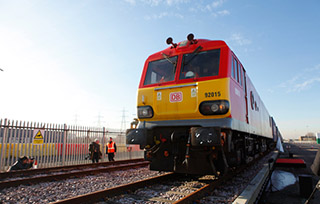Real leadership requires true globalization
Ominous footprints
In the past, world investment, trade and migration habitually picked up as recessions ended. Today, that is no longer the case.
In 2017, the Trump tariffs will pave way to greater protectionism, which could be supported by several elections in Europe. Moreover, the supportive effect of world trade and investment could deteriorate further as tit-for-tat retaliation scenarios are likely to ensue.
The footprints are dark. In the 1930s, the Smoot-Hawley Tariff Act in the US undermined a fragile recovery and paved the way for international disorder. At Davos, President Xi likened protectionism to "locking oneself in a dark room" in the hopes of protecting oneself from danger; yet in so doing, cutting off all "light and air.” The result is a trade war in which “no one will emerge as a winner.”
What the world needs today is responsible leadership, say WEF leaders at Davos. That is not possible without truly inclusive global economic integration, which, in turn, is not viable without broader, deeper and faster global governance reforms and purposeful cooperation by the G20 and other international multilateral organizations.
Globalization must not serve just a few wealthy advanced economies, which no longer fuel global economy. It must also serve poorer and faster-growing emerging and developing economies, which today account for global growth.
Dr Steinbock is the founder of the Difference Group and has served as the research director at the India, China, and America Institute (USA) and a visiting fellow at the Shanghai Institutes for International Studies (China) and the EU Center (Singapore).






















